
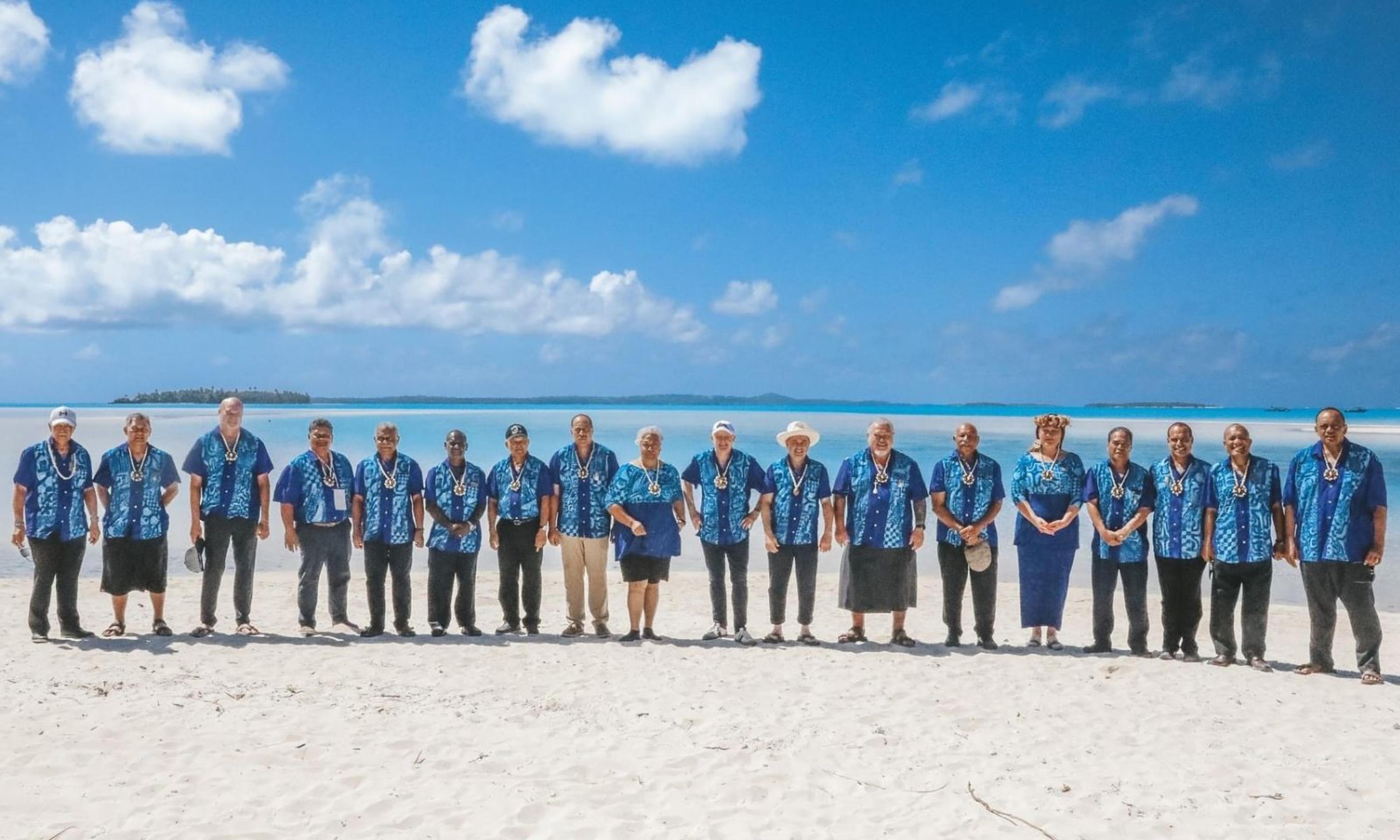
Pacific Islands Forum Leaders in Aitutaki.
Photo/CIMPFAI
Pacific leaders wrapped up the Pacific Islands Forum, so what happened?
The Forum included some big announcements for the region while New Zealand offered words of affirmation.


Realm relations in focus as Tokelau-NZ marks 100-year history
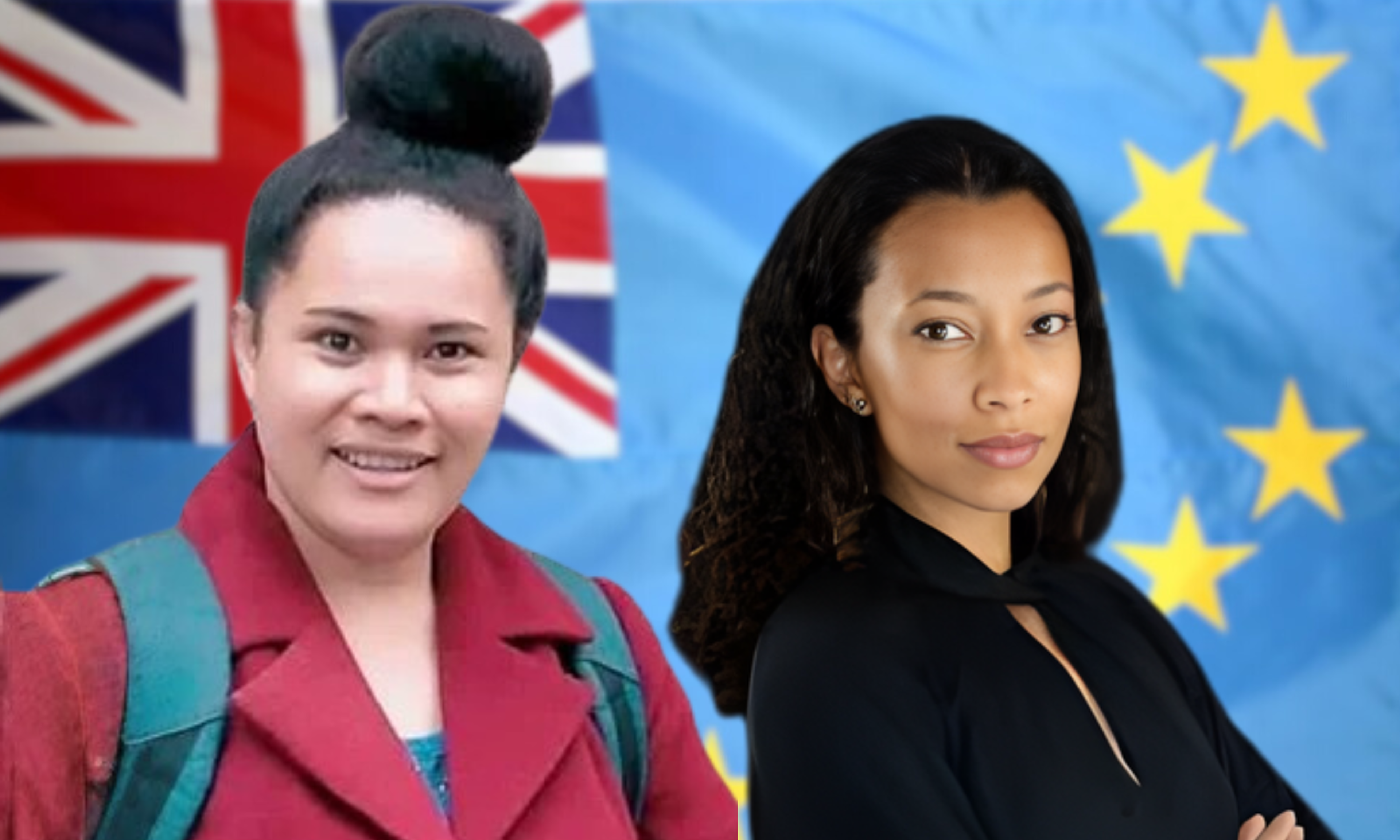
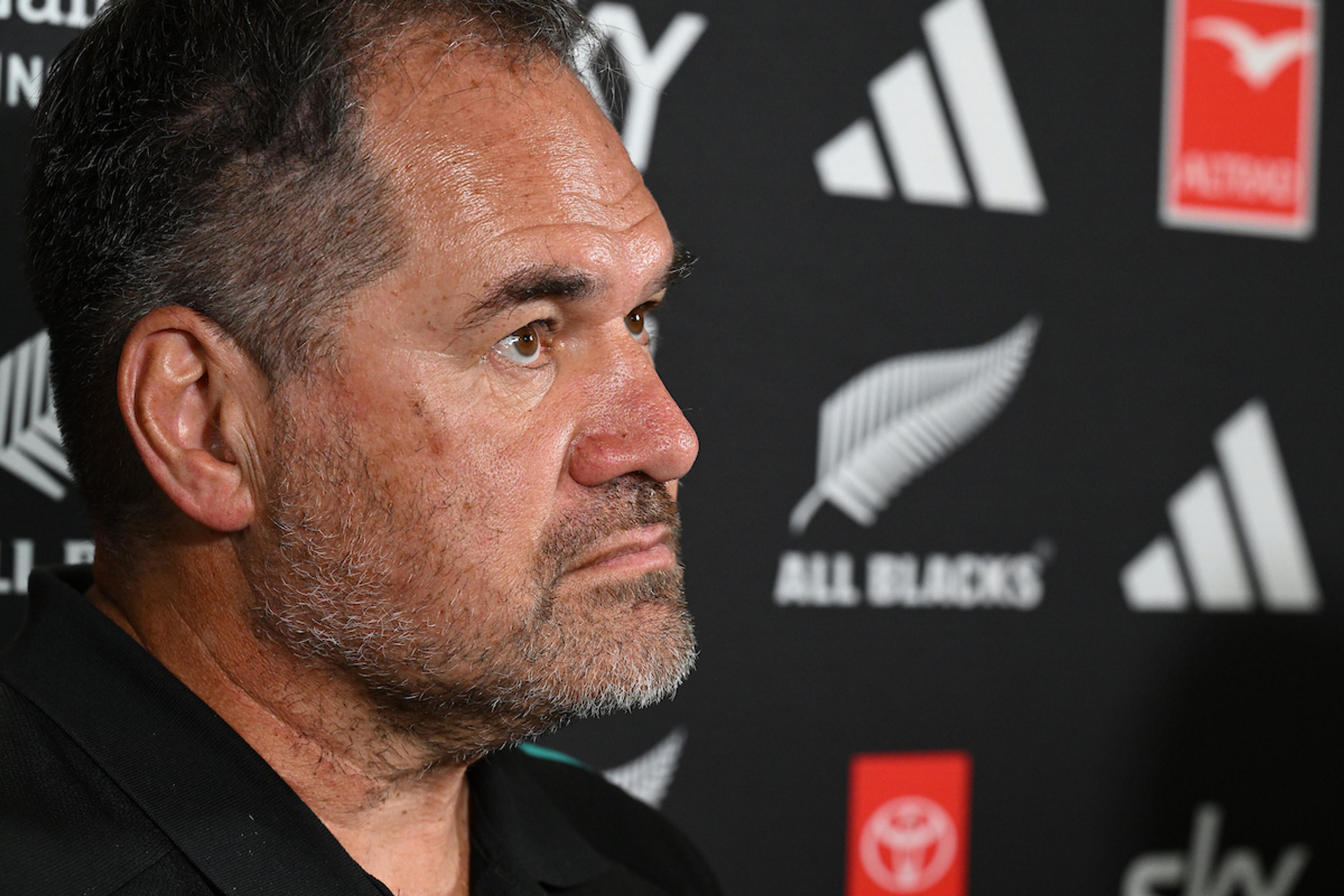
Dave Rennie becomes first All Blacks coach of Pacific heritage


Realm relations in focus as Tokelau-NZ marks 100-year history


Dave Rennie becomes first All Blacks coach of Pacific heritage
So who brought the heavy wallets to help the region and Forum leaders action change? And who instead brought handshakes and smiles to make up for "empty promises".
Australia made historic moves
Prime Minister Anthony Albanese signed a “most significant” agreement with the island of Tuvalu.
The deal called the Australia-Tuvalu Falepili Union provides $16.9 million dollars towards climate adaptation projects and hundreds of Tuvaluans will be offered access each year to Australia's health care services.
"there is no question that Tuvalu will benefit from this enhanced relationship"
In addition, the accord increases the country’s land mass and has veto power over Tuvalu's security arrangements with any other country.
Speaking on 531pi’s Pacific Mornings, Tuvalu's Finance and Climate Minister Seve Paeniu says the bilateral treaty is a statement of Australia’s commitment to the climate crisis his nation faces.
“We have a long-term adaptation plan, which involves building more land and building upward to protect Tuvalu and safeguard itself from the impact of sea level rising, so we are working with Australia on the design of that plan and its implementation.
“So there is no question that Tuvalu will benefit from this enhanced relationship, because now Australia has an obligation to build resilience for Tuvalu to be protected and safeguard its people from the impact of climate change and sea level rise.”
"It sets the tone for the type of engagement the region is looking for"
Saudia Arabia’s pledge to Pacific Resilience Fund
At the Forum's meeting with dialogue partners, Saudia Arabia announced US$50 million to initiate the Pacific Resilience Facility (PRF).
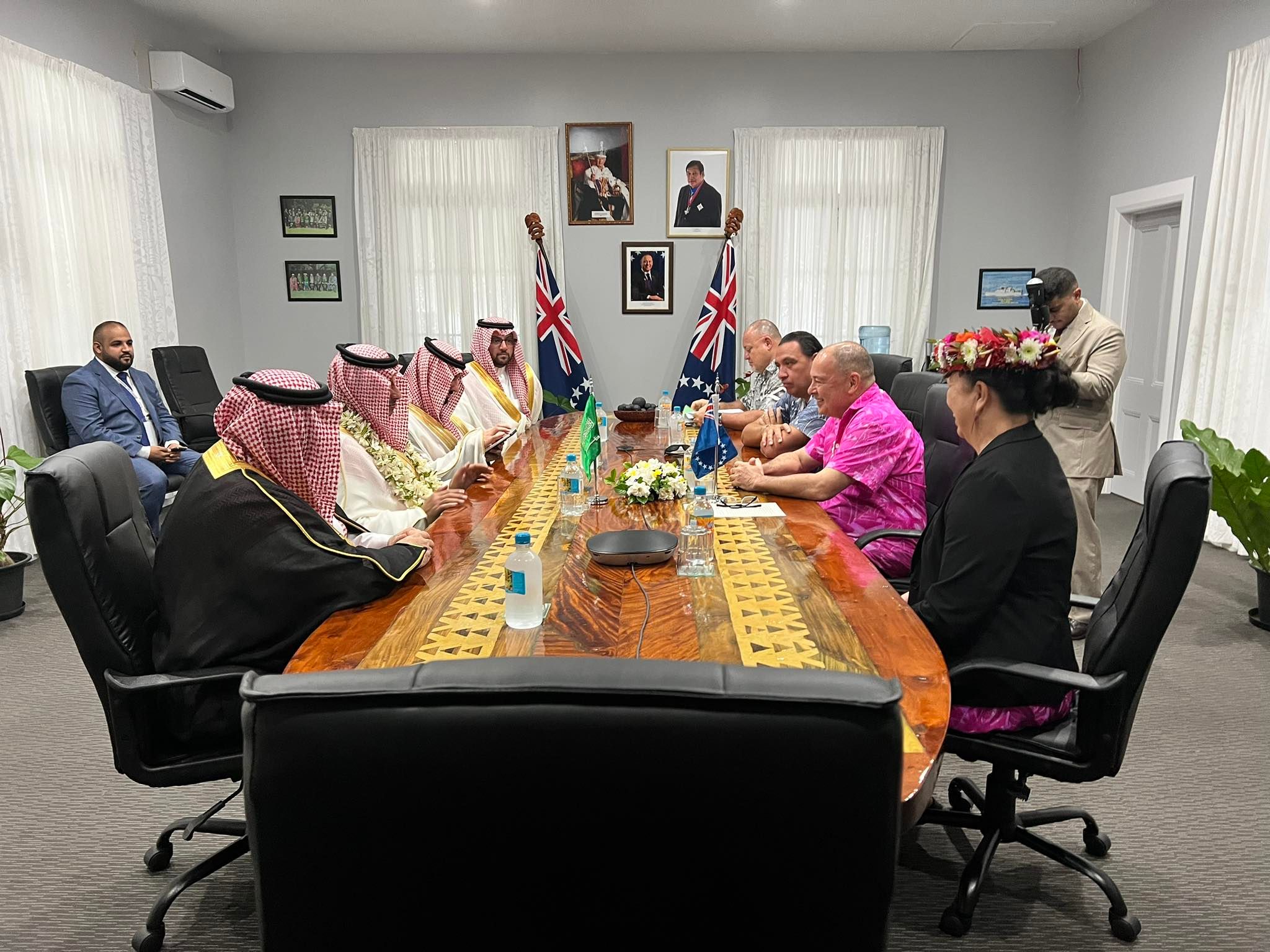
Saudia Arabia officials meeting with Cook Islands PM and Forum Chair Mark Brown. Photo/CIMFAI Facebook
Forum Chair Mark Brown welcomed the “tremendous contribution”.
“It sets the tone for the type of engagement the region is looking for. We’re looking forward to seeing what other levels of engagements will come from our dialogue partners, observers, and so forth.”
The PRF was influenced by two major factors: the need to address the extreme vulnerability of Pacific peoples enduring the climate crisis, and the burden of debt distress faced by Forum Islands members.
PIF leaders endorsed the Declaration on the Establishment of the Pacific Resilience Facility and noted the global pledging event to capitalise the PRF.
Australia and New Zealand’s commitments to contribute to the PRF were recognised, and Forum leaders emphasised that all partners should pitch in to support the US$500 million PRF target.
US finally ‘ready’ to fulfil a promise
In an interview with RNZ Pacific, US representative to the United Nations Linda Thomas-Greenfield reinforced her commitment to delivering climate financing for the region.
A pledge to provide over $8 billion in new funding and programmes for the Pacific Islands was released in the first ever US-Pacific Partnership Strategy.
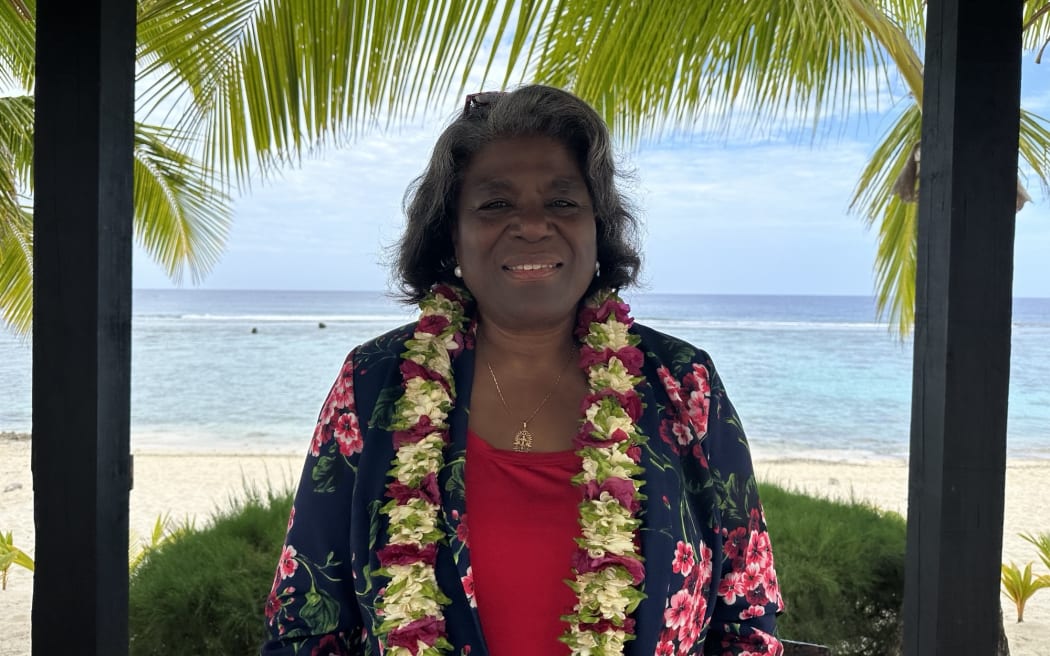
US Ambassador to the UN Linda Thomas-Greenfield. Photo/RNZ Pacific
Stalling over the funding’s distribution had been because of recent issues in Congress but Thomas-Greenfield said it is “ready now”.
"Over the course of the past couple of weeks, the House has been working to elect the speaker, the speaker has now been elected....we expect and hope that they will move forward on the President's budget requests in the coming weeks."
From next year, the US will have embassies in the Cook Islands, Niue, and Vanuatu. The action is part of President Joe Biden’s larger plan to boost US involvement in the region.
Where was China in all of this?
A Chinese envoy led by representative Qian Bo attended the dialogue leaders meeting.
China underlined the potential for a high-quality Belt and Road Initiative (BRI) to bring substantial opportunities for the development of Pacific nations.
The BRI is an infrastructure project led by China to connect them to the rest of Asia, Europe, and Africa through a network of railways, highways, ports, and pipelines to improve trade and promote economic cooperation.
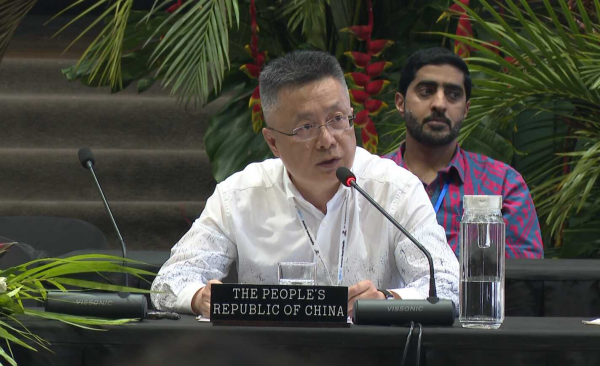
China's representative Qian Bo speaking at the Dialogue Partners' meeting. Photo/FMPRC
Bo told Cook Island News before the final forum meeting China and Cook Islands relations have been long standing.
“China has all along, since the establishment of diplomatic relations with the Cook Islands, with other countries, been providing material, technical, and financial assistance to our friends in the Pacific.”
New Zealand’s words of affirmation
Right off the bat, New Zealand had no packages or any form of monetary support announced, mainly because there are no hands on the cheque book - so to speak.
However, plenty of discussions, acknowledgements, and connections strengthening did take place with also a vaka paddle being presented to Cook Islands Prime Minister Mark Brown by New Zealand representatives, Carmel Sepuloni and Gerry Brownlee.
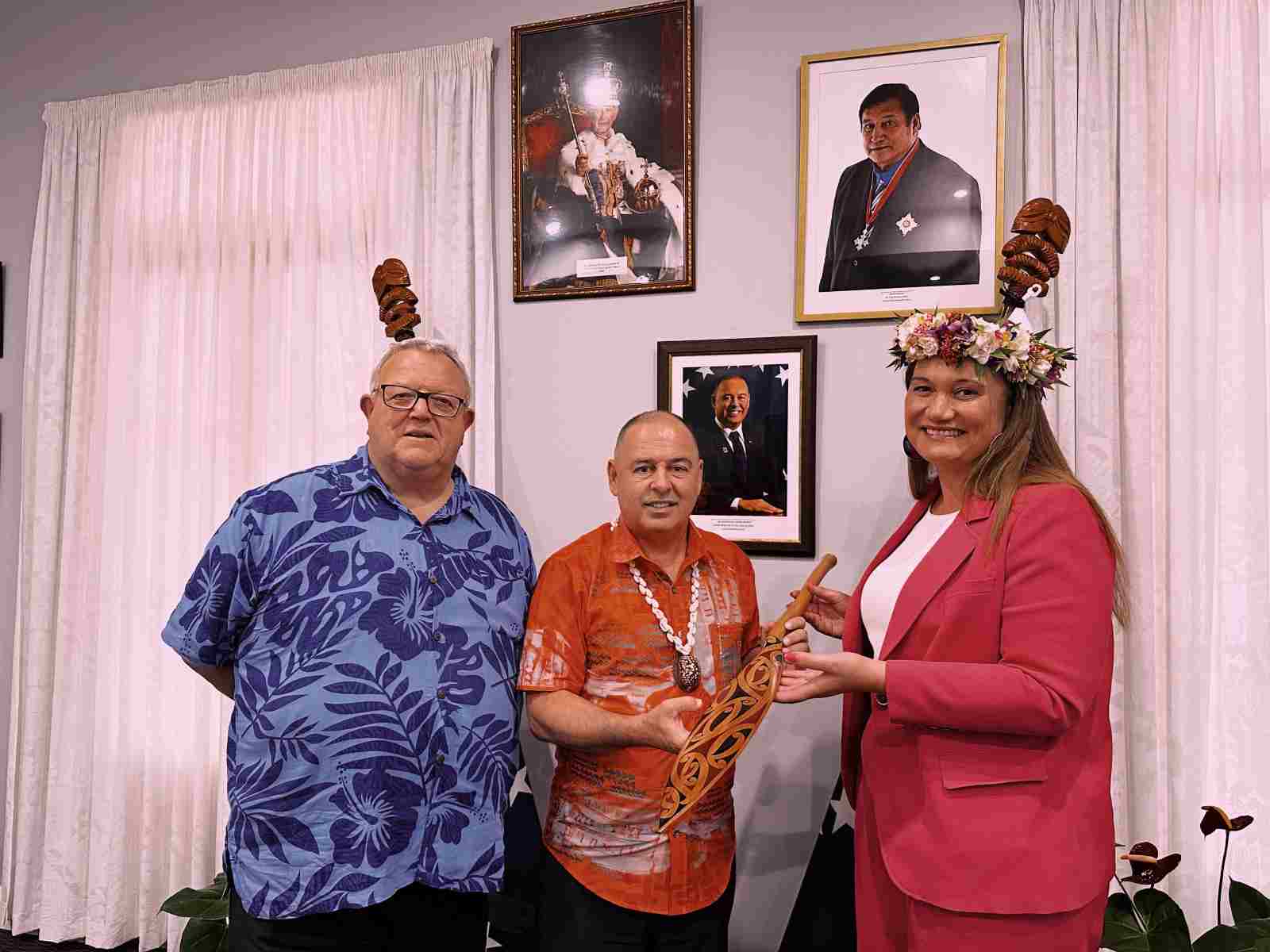
"Caramel Brownie" presenting a vaka paddle to Cook Islands PM Mark Brown. Photo/Supplied
Seeing opposing parties involved in bilateral meetings is unusual and perhaps uncommon but the pairing were seemingly a united front, often reassuring they are in “constant talks”.
Sepuloni said that with our nation still in a transitional phase, firm decisions and agreements couldn’t be made.
“Occasionally at these meetings, not often but there may be decisions or asks of us that are made on the fly…There is still the ability to make decisions and to make calls. Where there is uncertainty, because of the nature of the uncertainty we’re in, then I think it is fair and reasonable to expect that there may be a wish from us for a deferral of decisions.”
The next PIFLM is set to take place in Tonga, August 2024.